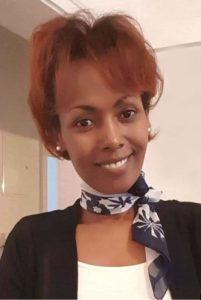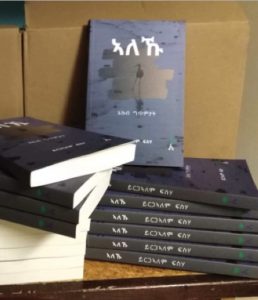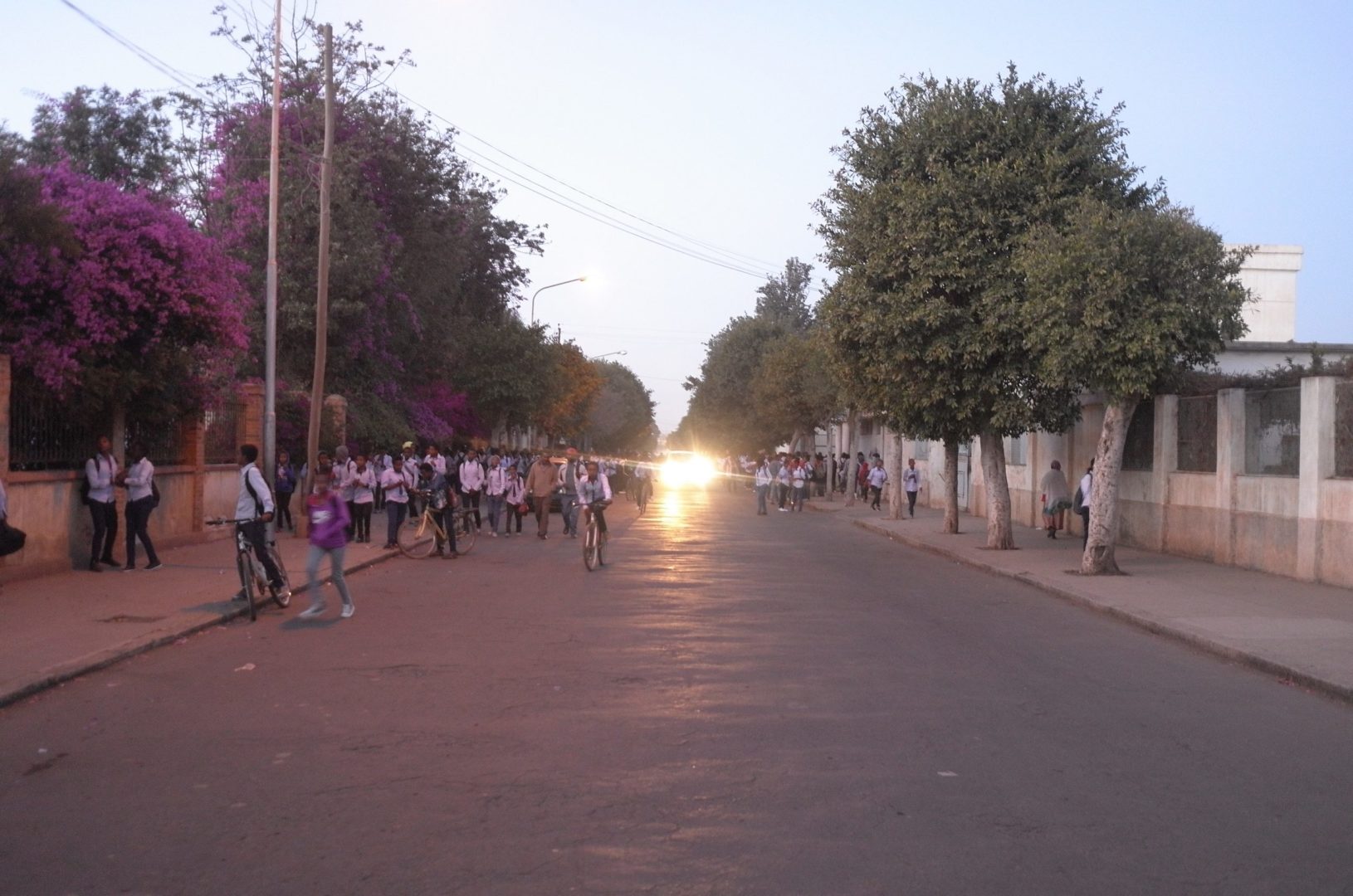11.03.2020
Yirgalem Fisseha – Poet and Radio Journalist
Interview by Susanne Berger (Washington D.C., USA)

Yirgalem Fisseha Mebrahtu is one of Eritrea’s most prominent poets, journalists and writers. She was born in 1981 in Adi-Keih, one hundred and ten kilometers south of the capital Asmara. Since 1990 she has worked with both state and private media. She published poems, short stories and articles until 2001 when the Eritrean government banned all private newspapers. A year earlier, in 2000, she was co-founder of the well-known literary association “The Literary Club of Adi-Kei
In 2002 she attended the Asmara Teacher Training Institute (ATTI) and worked for over five years as a producer and presenter at Radio Bana.
In 2009 she was arrested and imprisoned for six years in a military prison without any contact with the outside world. Among other things, she was accused of having planned the assassination of the Eritrean president. She was subjected to severe abuses, which led to repeated hospital stays.
It was not until 2015 that she was released from prison. Three years later she fled Eritrea to Uganda. There she published her poems and texts, including a summary of her experiences in prison. Yirgalem Fisseha now lives and works in Germany. In 2019 she received the PEN Eritrea Prize for Freedom of Expression. She was also one of five writers and activists who were awarded by PEN International in 2018. In October 2019 she published her book of poetry I am alive (in Tigrinya).
Interview
SB: What is the biggest misunderstanding that outsiders have about the political situation in Eritrea?
YF: The biggest misunderstanding and the most important thing to know about Eritrea is that there is no government. I am always confused when countries or politicians refer to the “government” in Eritrea. It is a disgrace to deal at all with such a regime that kills, tortures, arrests and disappears people for no reason. I have a question for everyone: “Why and how long do we tolerate this regime?”
SB: What should the international community consider in its relations with Eritrea?
YF: Unfortunately, I think all countries do not pay special attention to Eritrea and its situation. They pursue a so-called ” silent diplomacy ” which is very convenient for the regime. Instead, the only option we have is pressure, pressure and pressure, in all directions.
 SB: What can be done concretely to help the prisoners in Eritrea, some of whom have been in detention for decades?
SB: What can be done concretely to help the prisoners in Eritrea, some of whom have been in detention for decades?
YF: I am grateful to you for asking this question. Unfortunately, it does not help much at the moment. Many of them are already dead. Some of them suffer from serious diseases or disabilities. I don’t think good things about our dictator and I don’t expect good things from him. It is too late for that. Whatever we do, we will not see our prisoners again as long as the regime is in power. But we must work to destroy the regime’s networks here in Europe, America and Canada. We must continue to write, speak and bear witness about the situation of prisoners and human rights in Eritrea. It is a blocked country, but we can show the world the reality by being their voices.
Yirgalem Fisseha
I am alive, Emkulu, 2019
To mark International Women’s Day, Yirgalem Fisseha published on the Heinrich Böll Foundation’s migration policy portal the story of two courageous women whom she met in prison: “Ten years of darkness”.
Are You Writing?
Are you writing, sketching and scribbling,
Silently roaring and arguing?
Engraving your deep emotions
With a dough of tears!
That give off steam and heat
There and then
When truth battles to speak, and justice is hijacked
Compassion is trampled, and love screams
When the center cannot hold
And anarchy is loose
Do you shudder away by the pain and noise?
Or do you withhold, observe, and stay and write?
Their lie is called truth, your truth falsehood
Their bigotry is called honor, your courage is paid in death.
How could you then not not-write–
while standing there and it is fleeting before you–
Of course, you would write. How couldn’t you!
Go then and write, let it flow.
But where is the paper?
Just write it in the mind, or conceal it in the heart for now
The safe store,
where the wind cannot reach
And the flood cannot destroy.
(2014 – Übersetzung 2019 von Ghirmai Negash)
Nervous Conditions
The prison cell fits my body height
Its mud floor serves in lieu of my bed.
Suffocates, sickly atmospheric overwhelming,
like a bad effect of traditional medicine,
Hell in the inside, caged by a door in the shape of a serpent’s mouth.
Too much sorrow, I can’t bear.
If anyone would call, “Come with me!”
I wouldn’t want to ask “where?”
But would rather concur
To go along.
Never mind: with Demon or Man.
(2010 – Übersetzung 2019 von Ghirmai Negash)
Artcle and Interviwe: Susanne Berger (Washington D.C., USA)
Foto: Header Martin Schibbye, Future of Eritrea, Students going home from school in Asmara, Eritrea
Quote: “Interveiw with Yirgalem Fisseha, by Susanne Berger,” in: Fritz Bauer Blog, March 11, 2020: https://www.fritz-bauer-blog.de/en/home/yirgalem-fisseha






